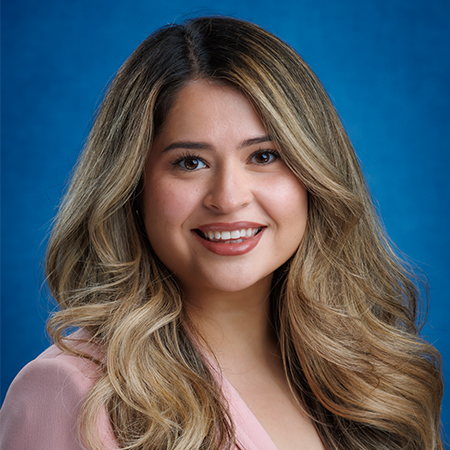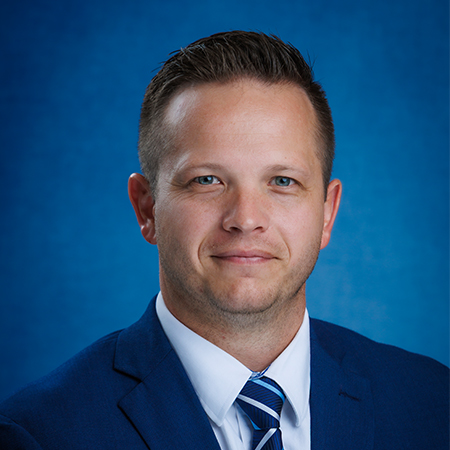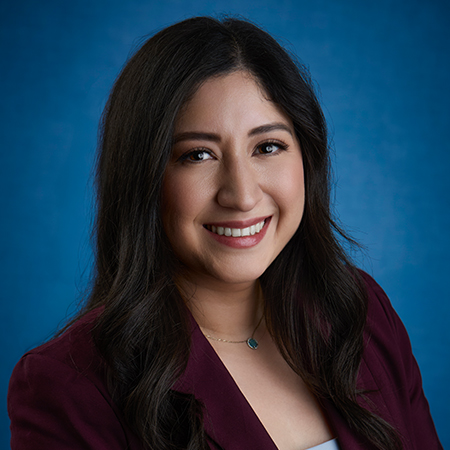How many hours of academic credit are required for completion of the LL.M. degree?
The number of hourly credits required for graduation with any one of the LL.M. degrees is 24.
Can I complete my full-time study for an LL.M. degree in one academic year?
Yes. Any of the LL.M. degrees may be completed in full-time status in one academic year which consists of two semesters, fall and spring. This process can therefore take as little time as nine months.
Can I study on a part-time basis for an LL.M. degree?
U.S. citizens may study part-time in the fall and spring semesters plus summer school sessions with the intention to complete the LL.M. degree in two academic years.
Should more time for completion of the degree program be needed, the LL.M. candidate must secure the approval of Jennifer Stevenson, J.D., Assistant Dean for International Programs.
Foreign nationals who must maintain student visa eligibility must enroll in a minimum of 10 credit hours per semester during the regular academic year (Fall and Spring). 10 hours is also considered full time for purposes of financial aid eligibility.
Will the LL.M. degree in American Legal Studies fulfill a necessary threshold requirement if I wish to sit for an American bar exam in order to become licensed in one or more states in the United States?
Each state in the United States independently regulates the eligibility of attorneys to practice law within its jurisdiction. The LL.M. in American Legal Studies will satisfy the U.S. legal education requirement for the LL.M. graduate to sit for the Texas, California or New York Bar exams (list not exhaustive).
Please note that some jurisdictions require additional components such as pro bono service, and that candidates are responsible for determining those requirements as set by the Board of Law Examiners in each state (http://www.ncbex.org/). In and of itself acquisition of the LL.M. degree in American Legal Studies does not qualify a foreign trained attorney to practice law in the United States.
How do I know which courses are necessary and otherwise most appropriate for the LL.M. in American Legal Studies and bar exam preparation?
While 24 hours are required to complete the LL.M. any student wishing to sit for a bar is encouraged to take every core law course available to them. Specific bar exam content can be accessed through each state’s Board of Law Examiners site. It is also expected that LL.M. candidates will participate in formalized bar prep activities like their J.D. counterparts to prepare.
Does St. Mary’s Law School impose LL.M. application deadlines?
The LL.M. program admits two cohorts each year: fall and spring. While we have rolling admission, foreign LL.M. applicants are encouraged to submit a complete application package at least two months before the commencement of the semester in which the applicant intends to begin his/her first semester of study.
This helps ensure that the I-20 can be processed by the University’s International Student and Scholar Services Office in enough time for the applicant to secure a student visa for study in the United States.
If I am a foreign national applying to the LL.M. program, what English language requirements must I meet in order to be granted unconditional admission?
LL.M. applicants whose native language is not English are required to take the Test of English as a Foreign Language (TOEFL) or the International English Language Testing System (IELTS) prior to their admission to the LL.M. programs. English proficiency is the key for LL.M. students to meet the rigorous reading and writing requirements at St. Mary’s University School of Law.
Cut-off scores are: 80 points on the internet-based TOEFL or 6 points on the IELTS test. The TOFEL code for St. Mary’s University is 6637. Only current TOEFL and IELTS scores will be considered. The Admissions Committee reserves the right to interview candidates via telephone or Skype to verify English proficiency.
International applicants who have successfully completed a high school, secondary or post-secondary program of study in English are exempt from the English proficiency test requirement.
May LL.M. applicants apply through the Law School Admissions Council (LSAC)?
Yes. This is the preferred method if an applicant plans on taking a bar exam.
What materials are required for a foreign student visa application?
The following materials are required:
A valid passport
The visa application payment
The Law School’s official letter of admission to the LL.M. degree program
The completed I-20 form issued by the International Student and Scholar Services at St. Mary’s University
A bank statement of financial responsibility to pay tuition and all other related LL.M. program costs
What are the current estimated costs of obtaining an LL.M. degree at St. Mary’s University?
Please see current tuition rates.
Where can I find the academic requirements for the completion of any one of the LL.M. degree programs?
For sample academic plans or a copy of the Student Handbook, please email the Director of Graduate Law Programs at: stmullm@stmarytx.edu.
What can I expect after I am admitted to the LL.M. program?
Admitted students will receive their student credentials, access to an online orientation module and will be contacted to register for classes before the start of the semester.
What is Optional Practical Training (OPT) and can I enroll?
LL.M. students with F-1 status who have completed their degrees may apply for Optional Practical Training. The work must be in their field of study and must include practical training. F-1 students are usually permitted a total of 12 months of practical training.
Information on the OPT is sent out to international students by the Office of International Students and Scholar Services (ISSS) during a student’s last semester of study. Contact ISSS for more information. Students are responsible for securing the work assignments.










